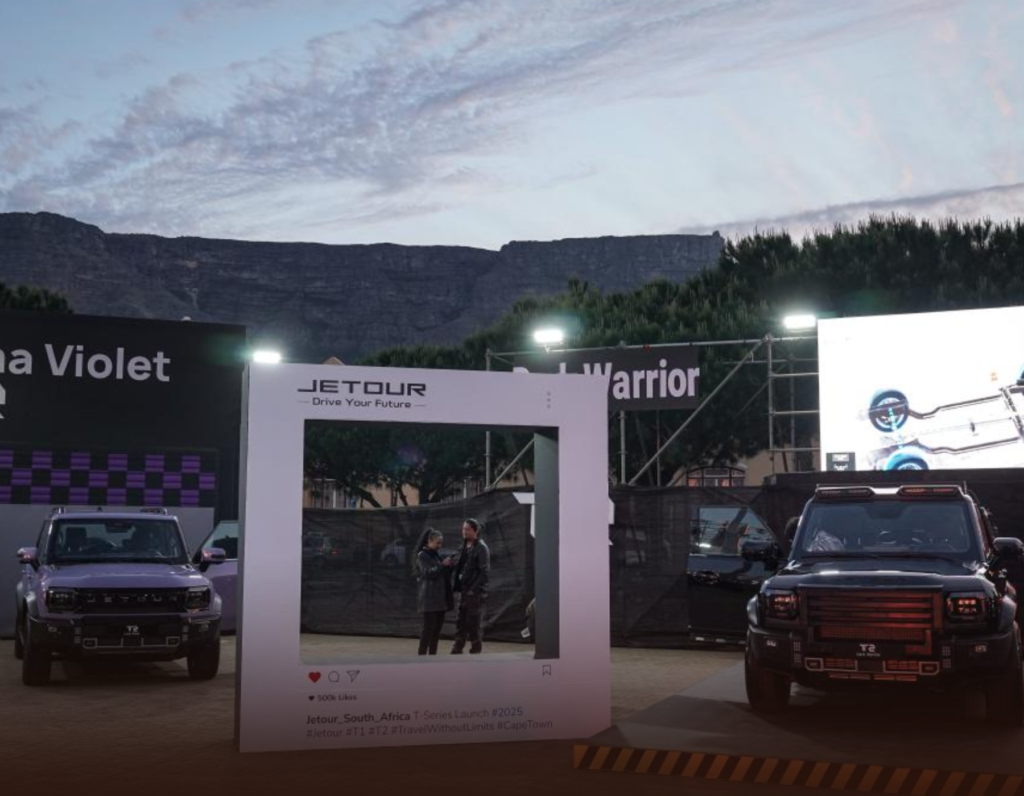Chinese auto marque Jetour officially launched its new T-Series SUVs at the Grand Parade in Cape Town, introducing the T1 and T2 models to the South African market. The launch event drew hundreds of journalists, local dealers and business partners, and the vehicles are slated to reach over 55 dealerships across southern Africa by mid-November.
Jetour, a sub-brand of Chery holding group founded in 2018, is positioning itself to tap into South Africa’s booming SUV segment by emphasising advanced technology, strong value and fresh styling. At the event, Jetour International president Ke Chuandeng confirmed that dedicated units will be supplied for the upcoming G20 Summit Johannesburg: “We will deliver 70 T-Series vehicles for use during the G20,” he said.
Local reviewers emphasised the growing acceptance of Chinese automotive brands in South Africa. Journalist Babalo Ndenze observed: “Chinese cars are ‘the cars of the moment… They drive as well as German cars’,” highlighting how consumer perceptions have shifted. Jessica Bartlett, one South African driver, called the vehicles “very beautiful” and said she felt Chinese brands were beginning to displace more established manufacturers.
Jetour’s arrival comes amid a broader expansion of Chinese car brands in South Africa. According to Reuters, automakers such as BYD, Chery, GAC and Great Wall Motor have identified South Africa as a key entry point into African markets. BYD has already announced plans to nearly triple its dealership network in South Africa by 2026, underlining the competitive energy among Chinese brands in the region.
The South African automotive industry, one of the continent’s most developed, is seeing Chinese brands gain market share through aggressive pricing, strong warranties and dealer networks. Jetour’s local pricing strategy (with the T1 starting at about R 514,900) and a 10-year/1 million km engine warranty suggest a bold push into value-conscious segments.
The Jetour launch is emblematic of wider South Africa–China economic cooperation. The two countries elevated relations to a Comprehensive Strategic Partnership and now collaborate across sectors including infrastructure, energy, trade, and manufacturing. China is South Africa’s top trading partner, and South Africa remains a gateway for Chinese firms into sub-Saharan Africa.
Chinese investment in South Africa’s automotive and manufacturing sectors is now part of a dynamic vision of industrialisation and technology transfer. For South Africa, the influx of Chinese brands supports the national goal of expanding local manufacturing, diversifying the economy and creating jobs.
Jetour’s launch in Cape Town is more than a product unveiling – it represents a case study in the evolution of China-Africa automotive relations, blending technology, value and expansion into a competitive landscape. Success will depend on building strong local supply chains, dealer infrastructure and after-sales support. But for now, the T-Series debut signals that Chinese vehicular entry is accelerating and that the South Africa-China automotive corridor is here to stay.
As the vehicles begin sales in mid-November and dealerships ramp up, the broader message is clear: Chinese automakers are not just entering Africa, they are building for Africa, and South Africa is central to that strategy.




